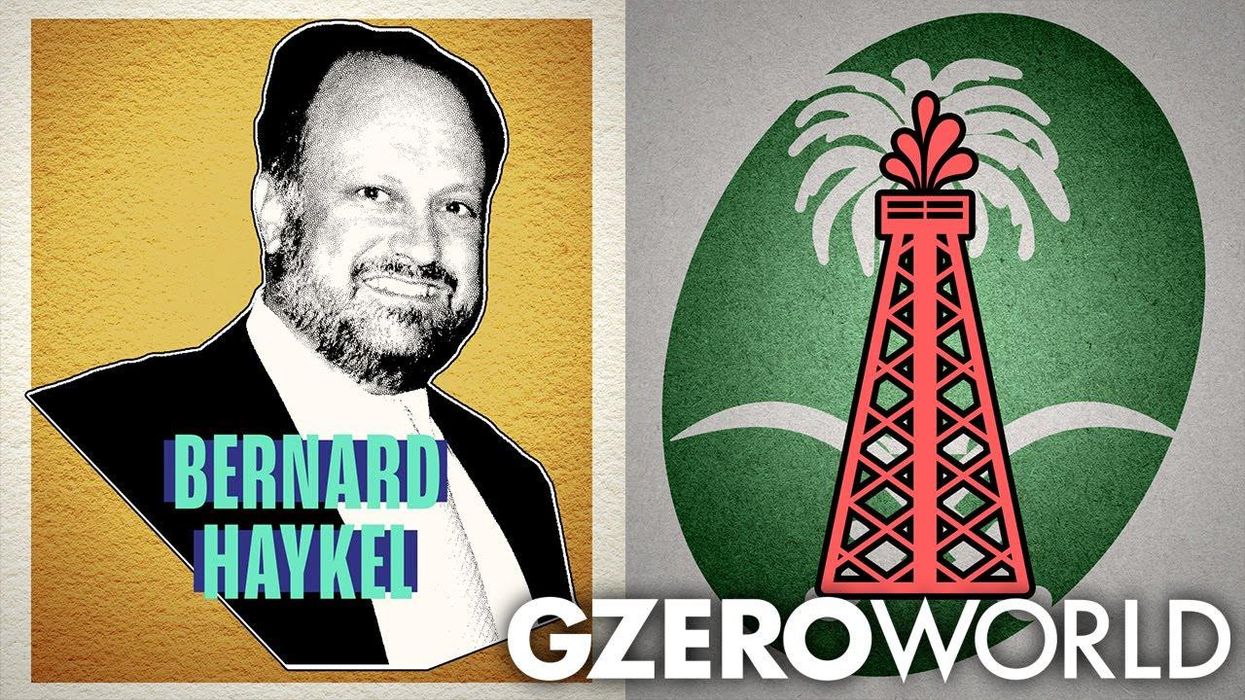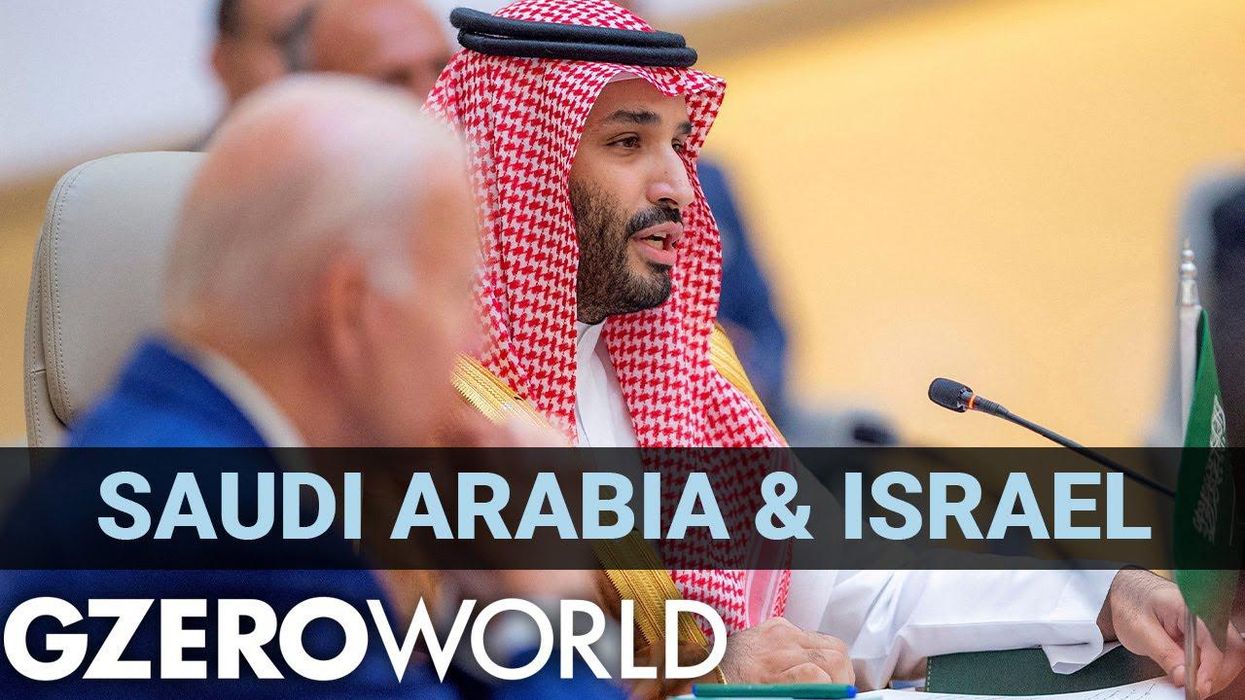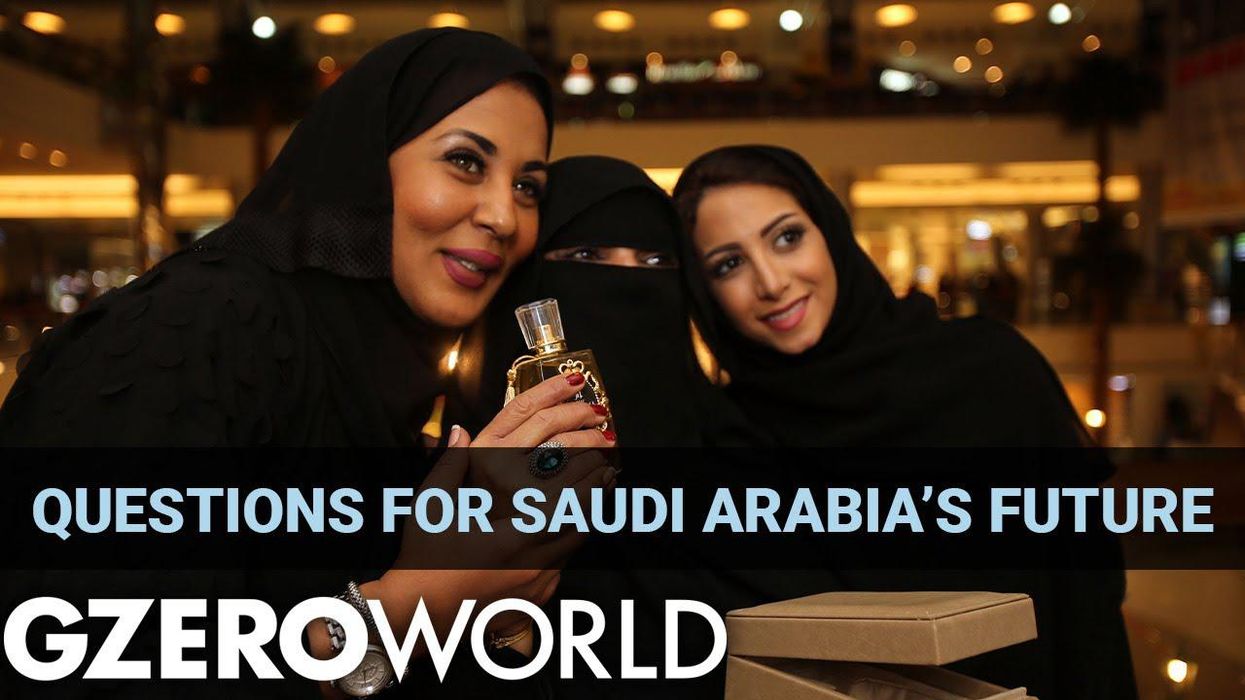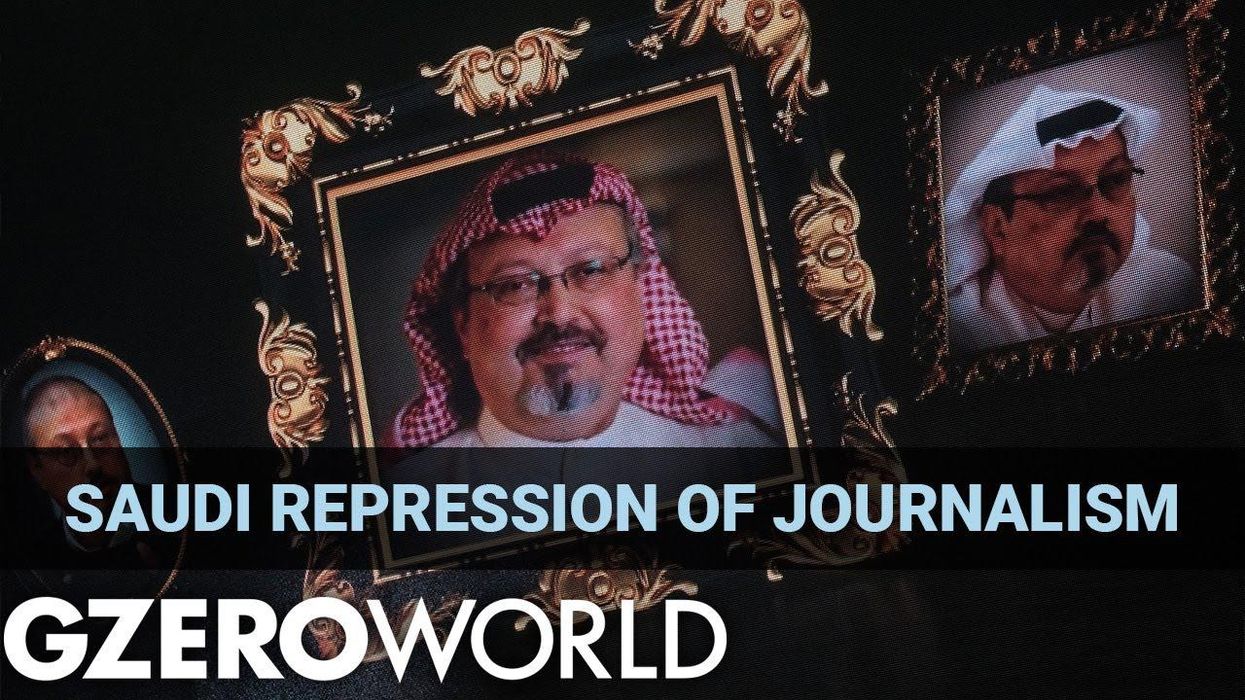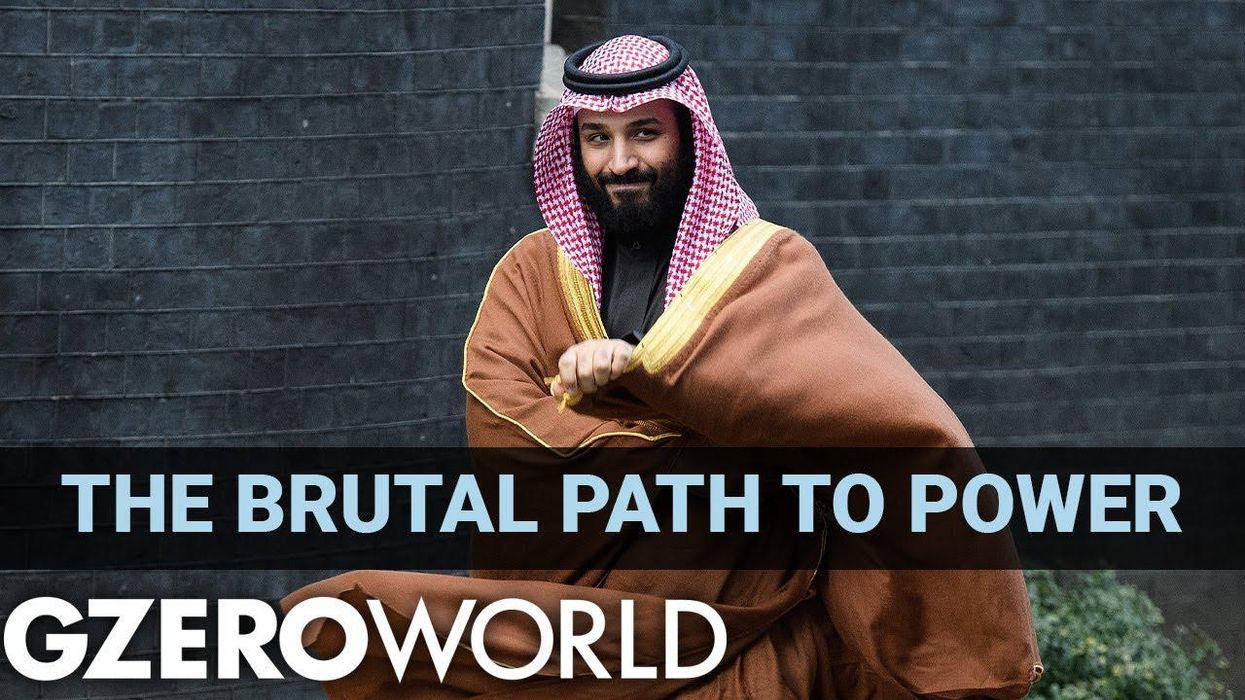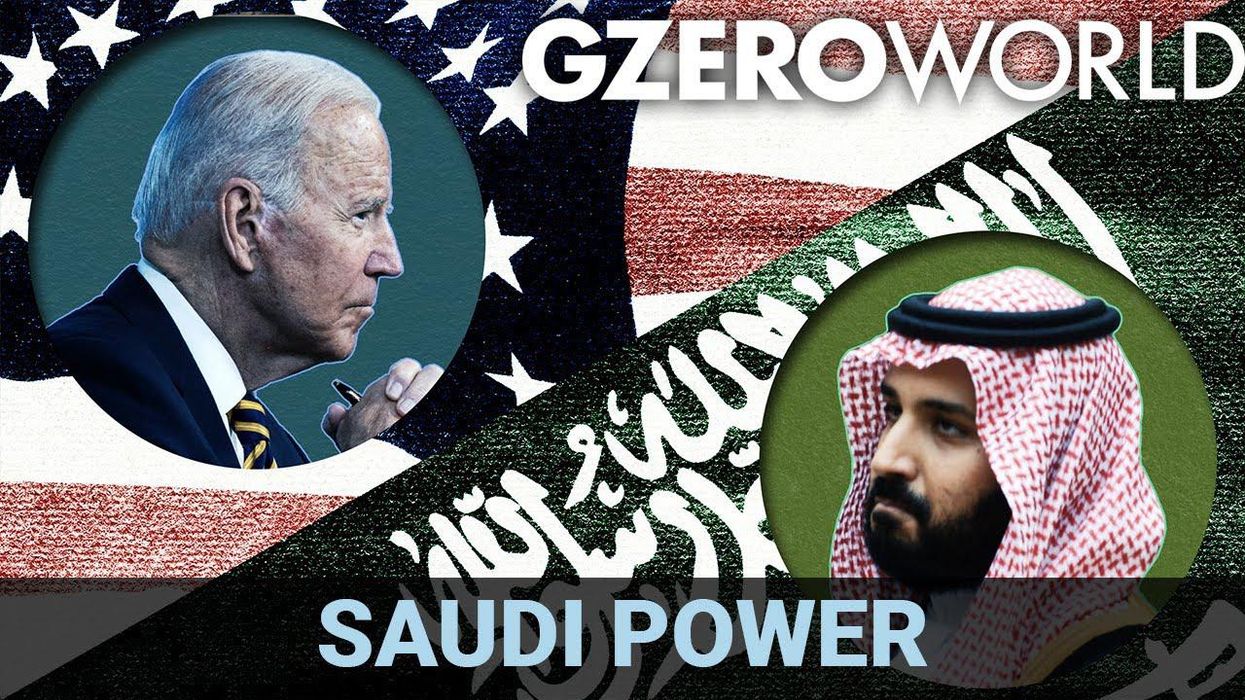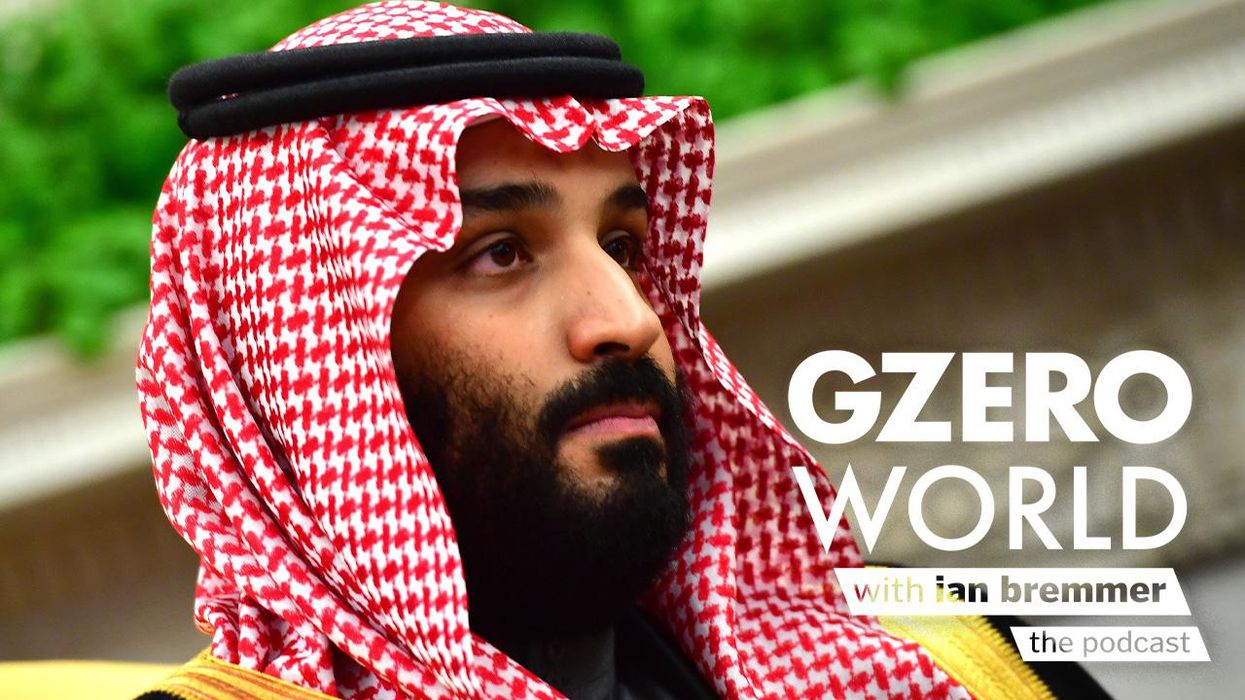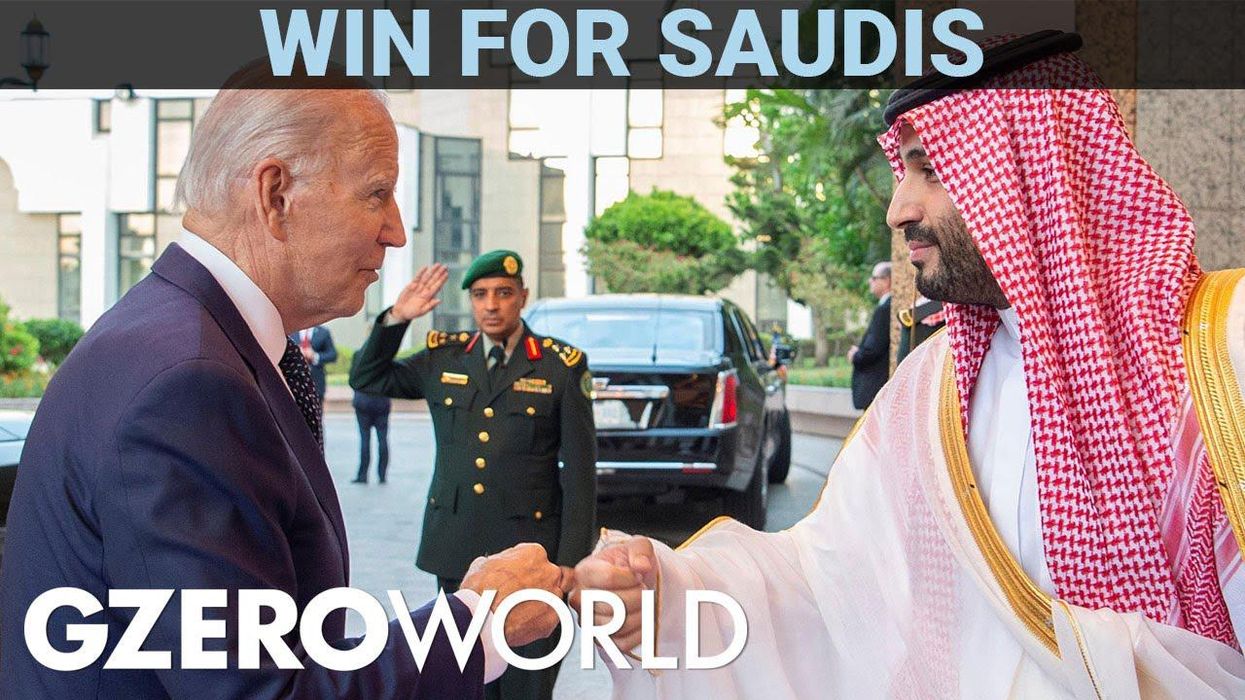GZERO World Clips
Saudi Arabia proved it's still the key player in the Gulf
Joe Biden's pledges to prevent Iran from getting the bomb and to defend Saudi Arabia from an attack were "music to Saudi Arabia's ears," Bernard Haykel, a professor at Princeton University and confidante of Crown Prince Mohammed Bin Salman tells Ian Bremmer on GZERO World.
Aug 07, 2022
